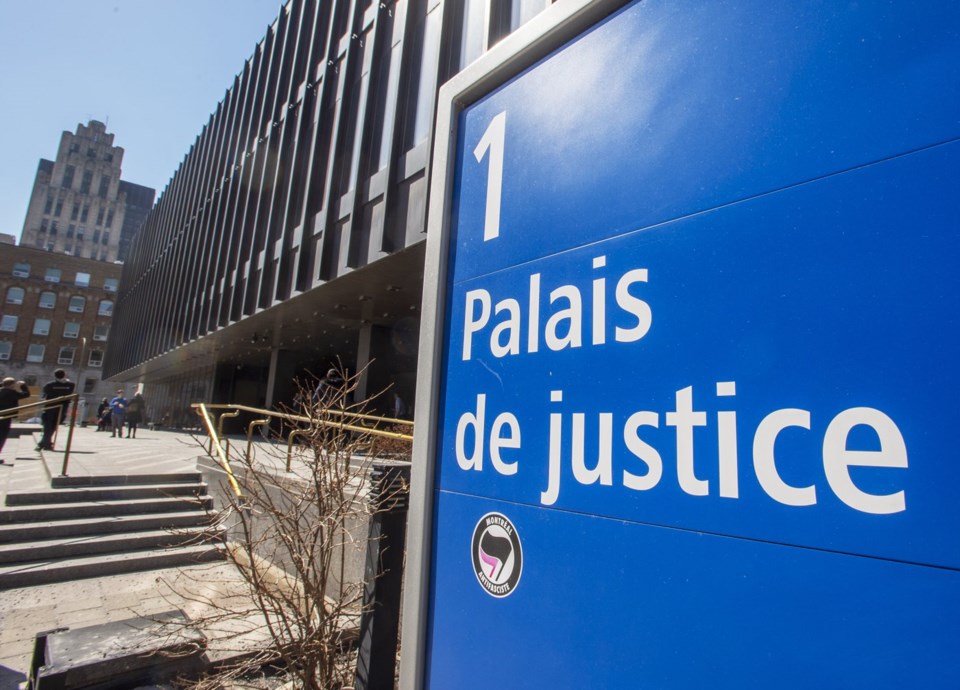MONTREAL — A Quebec Superior Court judge has authorized a class action suit brought on behalf of racialized people who were stopped while behind the wheel by police without reason to suspect an offence.
Justice Catherine Piché authorized the lawsuit in a ruling rendered last month, which targets police in eight defendant cities and the Quebec attorney general, which represents the provincial police.
The list of defendants covers police patrolling much of the province, including its largest cities — Montreal and surrounding suburbs, Gatineau and Quebec City.
"It follows that even if we remain cautious at this stage ... the present request appears to me to be anything but frivolous," Piché wrote.
The lawsuit was filed in November 2022 by Papa Ndianko Gueye, following a stop in Longueuil, Que. just south of Montreal.
He represents "any racialized person who has been the victim of racial profiling during a traffic stop without reason to suspect the commission of an offence by the police services of one of the defendant cities or by the Quebec provincial police since May 23, 2019."
Gueye alleges he was stopped while driving his white Audi on March 26, 2021, but didn't commit a traffic violation. The officer told him he'd stopped him for driving over the speed limit, and Gueye alleged the officer became aggressive and summoned backup quickly.
A few days after the stop, he went to the police station to ask about the interception but was told police did not have any record of it. He received three tickets in the mail, including one for speeding. He alleges the interception was based on "no genuine motive" and characterized it as racial profiling.
The class action was filed in November 2022, two weeks after a landmark decision by Quebec Superior Court Justice Michel Yergeau in a case seeking to have a common law rule allowing Canadian police to stop drivers for no reason to be declared unconstitutional.
Yergeau sided with Joseph-Christopher Luamba, a Montrealer of Haitian descent, ruling racial profiling exists and is a reality weighing heavily on Black people.
Yergeau's ruling effectivly nullified Section 636 of the province's Highway Safety Code, which gives officers discretionary power to stop any vehicle without reason.
"The preponderant evidence shows that over time, the arbitrary power granted to the police to carry out roadside stops without cause has become for some of them a vector, even a safe conduit for racial profiling against the Black community," Yergeau wrote in October 2022.
"The rule of law thus becomes a breach through which this sneaky form of racism rushes in."
Gueye's lawyers include a combination of the same lawyers in the Luamba case. His filing alleges police forces in those cities systematically exercised this power in a discriminatory manner in violation of the rights and freedoms of those falling under the class.
The Quebec government has appealed the Luamba ruling, arguing it deprived police of an important tool to stop crime, but the Court of Appeal upheld Yergeau's decision last year and gave the province six months to make the necessary changes to the Highway Safety Code.
Quebec's Public Security Department announced last month that most random traffic stops by police had been suspended, after the Court of Appeal refused to grant an extension.
Earlier this month, the Supreme Court of Canada agreed to hear a case about whether it's constitutional for police to make a random traffic stop without reasonable suspicion the driver has committed an offence.
In the Gueye case, the parties are expected before the Superior Court sometime in the next two months for a hearing.
This report by The Canadian Press was first published May 10, 2025.
Sidhartha Banerjee, The Canadian Press



